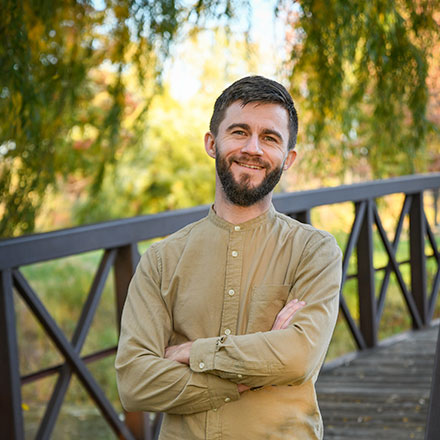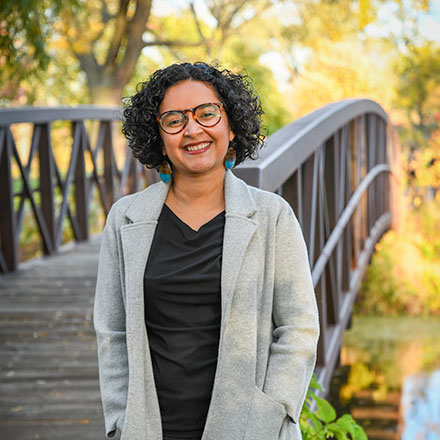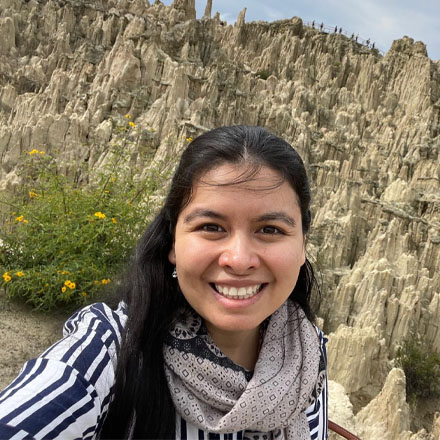Riahl O'Malley
Co-founder
Riahl’s mission is to help social change trainers see their value and become more effective so they can form leaders who form leaders.
He has developed grassroots partnerships using education and training for social change in Canada, Nicaragua, Honduras, and all over the United States on topics including political economy, racial justice, strategy, leadership, and more both online and in person.
Some successes achieved by Learning to Transform with Riahl’s leadership include:
- Helping a state university labor extension group secure partnership contracts that bring transformation to the unions with whom they work while raising revenue, making their work more impactful and sustainable.
- Creating a step-by-step operations guide for staff who provide technical assistance, financial assistance, and consulting to Latinx-owned businesses.
- Building a comprehensive leadership pipeline for a state-wide Latinx organization that helps those who come seeking services to take a lead in policy and action.
- Developing and implementing an online curriculum to improve relations between Black and Latinx workers after uprisings following the murder of George Floyd.
In his previous position as National Education Director at United for a Fair Economy, he increased training revenue through partnership contracts and sliding scale training registration and led the team to re-invest revenue in scholarships and language justice to make programming more accessible.
As Program Coordinator at Witness for Peace he facilitated delegations as a tool to organize people in the U.S. to take action for just U.S. foreign policy. He also authored a popular education handbook for delegation facilitators and co-chaired their anti-oppression committee.
In college, he co-founded a program within the Kawartha World Issues Center that trained students as popular educators and led them to form a partnership with a local youth center to host trainings and events. For this work, he was awarded the Karanja Njoroge Community Service Award.
Riahl holds a Masters of Advocacy and Political Leadership from the University of Minnesota – Duluth. While his distant ancestors were European settlers from Sweden, Ireland and England, he lives in a Spanish-speaking household in Saint Paul, Minnesota with his partner (in life and work) Indira and their son Adrián.

- riahl@learningtotransform.org

- indira@learningtotransform.org
Indira Garmendia
Co-founder
Indira has dedicated her life to defending justice for women, immigrants, workers, and people of color. She is a proud Nicaraguan feminist and organizer who believes in the collective power of everyday people and is here to help you and your team build it.
She was politicized by the Central American feminist movement in her home country of Nicaragua where she quickly went from attending trainings on gender and reproductive justice to organizing and leading them across the country. Alongside her peers she founded a feminist collective that led educational communications campaigns on sexual and reproductive freedom. Later she applied her passion across Central America as a foundation program officer, mentoring newly formed women’s groups run by indigenous, rural, and working class young people.
Since moving to the United States she has been working alongside other immigrants and people of color in the struggle for justice. She worked in the largely immigrant communities of Chelsea and East Boston in Massachusetts for environmental justice and in the promotion and creation of immigrant-owned worker cooperatives. She currently leads a leadership development program for Latinx and African-American low-wage workers within a Minnesota workers center dedicated to racial and economic justice.
In her free time she likes to plant vegetables and flowers, go to new places to hike and explore, and attend marches where she can scream at the top of her lungs for justice. You might catch her on TV in Central America, starring as Jessica in the social issues telenovela “Loma Verde.”
She is pursuing a Masters in Cooperative Enterprise and Social Business Management with the University of Mondragon in Spain and sits on the Advisory Board for Rooted Philanthropic. She lives in Saint Paul, Minnesota with her husband Riahl and son, Adrián.
Xochilt Exue Hernandez Leiva
Trainer
Xochilt Exue Hernandez Leiva is a Nicaraguan-Colombian educator, social researcher, and anthropologist with multidisciplinary experience in community development, youth and community leadership, and education. She holds a MPhil of Education, with an emphasis on Educational Leadership and School Improvement, and a Peace Studies diploma. With more than 8 years of experience in formal and non-formal education, she has contributed to research projects focusing on peace education, non-violent strategic action, educational assessment, educational leadership, and entrepreneurship education.
Additionally, she has contributed to international research projects on international education, environmental management, and indigenous rights; and has extensive experience leading organizations and in implementing, monitoring, and evaluating community development projects in Latin America, through a participatory lens.

Ready to use education and training to expand your impact for social change?


